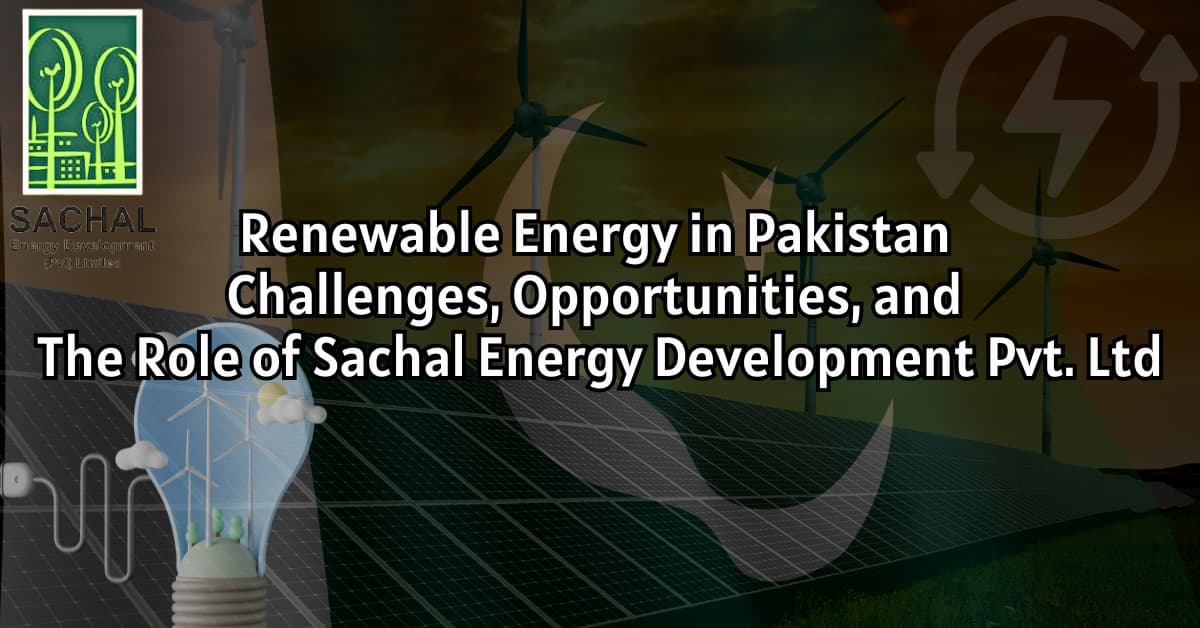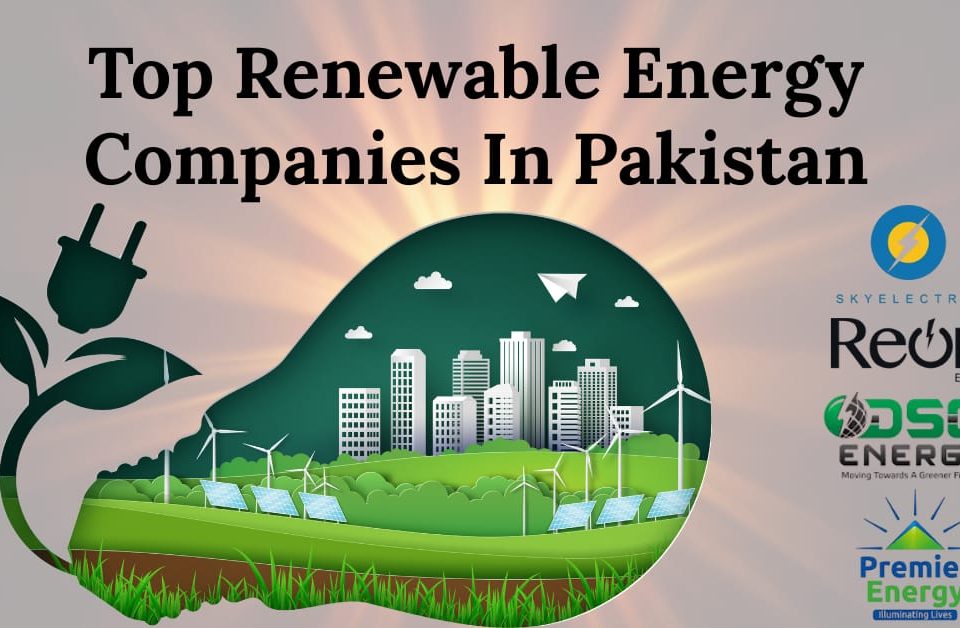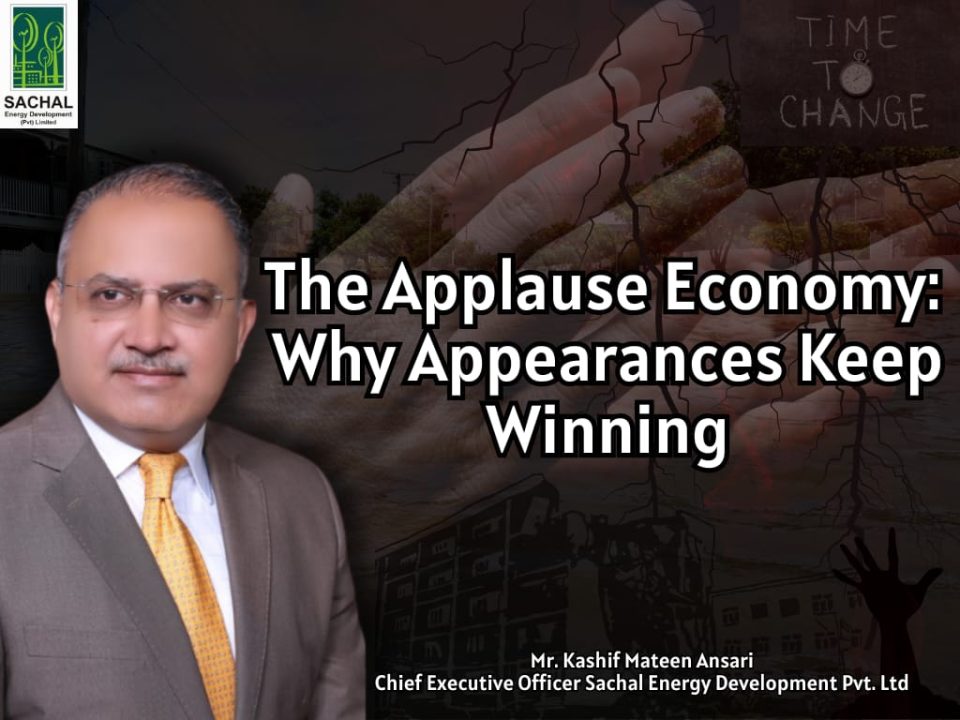Renewable Energy in Pakistan: Challenges, Opportunities, and the Role of Sachal Energy Development Pvt. Ltd

Navigating the IMF’s Labyrinth: The Trials and Tribulations of Pakistan
October 3, 2024
Harnessing Pakistan’s Youth for Economic Transformation
January 25, 2025Introduction:
Renewable energy is rapidly emerging as a cornerstone for sustainable development globally, and Pakistan is no exception. With an ever-growing population and increasing energy demands, the country faces significant challenges in meeting its energy needs. However, the abundant natural resources in the form of solar, wind, hydropower, and biomass present tremendous opportunities for transitioning to a cleaner and greener energy future. Renewable energy is crucial for addressing Pakistan’s growing energy needs while reducing dependence on fossil fuels. This article explores the landscape of renewable energy in Pakistan, the challenges it faces, and the contributions of Sachal Energy Development (Pvt.) Ltd. (SEDL) in driving the country towards a sustainable energy future.
Renewable Energy Potential in Pakistan
Pakistan is blessed with a diverse range of renewable energy resources:
- Wind Energy: The southern coastal belt, particularly in Sindh and Balochistan, has significant wind energy potential. The Gharo-Keti Bandar wind corridor alone has an estimated capacity of 50,000 MW.
- Solar Energy: With an average of over 300 sunny days annually, Pakistan has enormous potential for solar power generation. Solar farms and rooftop solar installations can cater to both urban and rural energy demands.
- Hydropower: Pakistan has substantial hydropower potential, especially in the northern regions. However, much of this potential remains untapped due to financial and infrastructural constraints.
- Biomass: Agricultural and municipal waste can be harnessed to produce bioenergy, offering a dual benefit of waste management and energy generation.
Challenges in Renewable Energy Adoption
Despite its potential, the renewable energy sector in Pakistan faces several hurdles:
- Policy and Regulatory Issues: The lack of consistent policies and streamlined regulatory frameworks discourages investment in renewable energy projects.
- Financial Constraints: High upfront costs and limited access to financing deter widespread adoption of renewable energy technologies.
- Infrastructure Limitations: Inadequate grid infrastructure hampers the integration of renewable energy into the national grid.
- Public Awareness: Limited awareness among the general population about the benefits of renewable energy is another significant barrier.
Sachal Energy Development (Pvt.) Ltd.: Pioneers in Wind Energy
Sachal Energy Development Limited (SEDL), among the pioneers in clean energy in Pakistan and one of the first projects under the China-Pakistan Economic Corridor (CPEC), operates a 49.5 MW wind power plant in Jhampir, Sindh. The project has 33 operational wind turbines installed to generate over 136,500 MWh of electricity annually, the plant significantly contributes to the national grid, supporting sustainable development and reducing greenhouse gas emissions. SEDL’s mission is to empower Pakistan with innovative, eco-friendly energy solutions that align with the global fight against climate change.
- Carbon Credit Initiatives: SEDL’s wind power project is the first in Pakistan to be registered under the United Nations Framework Convention on Climate Change (UNFCCC) Clean Development Mechanism (CDM) and the Gold Standard. The company has successfully completed three issuances of carbon credits, setting a benchmark for other renewable energy projects in the country. The project offsets over 68,695 tons of CO2 annually, earning carbon credits and contributing to a sustainable future for Pakistan.
- Community Development: Beyond energy production, SEPL actively engages in Corporate Social Responsibility (CSR) initiatives. At SEDL, we believe in uplifting communities alongside clean energy production. Our commitment extends beyond the generation of clean power to initiatives that create meaningful change in local region of Jhampir. By employing locals and offering skill development opportunities, we’ve enhanced livelihoods in a challenging region. Our CSR efforts include free health services, clean drinking water through solar-powered RO plants, and education support with the establishment of a mosque and madrasa for the local community. The company has been instrumental in projects such as the construction of the Jhakro Masjid and tree plantation drives at the Sachal Energy Development Project site, improving the ecological value of the area.
- Green Pakistan Initiative: In line with its environmental commitments, SEPL has also launched a tree plantation initiative aiming to plant 4,500 trees in the region. This ongoing effort has already resulted in the planting of over 1,500 trees, contributing to improved biodiversity and ecological balance in the area.
- Sustainable Development Goals Compliance: The Sustainable Development Goals (SDGs) are a set of 17 global goals established by the United Nations in 2015, designed to address major global challenges and ensure a sustainable future for all. These goals focus on areas such as poverty eradication, quality education, gender equality, clean energy, climate action, and sustainable development. The goals relevant to Sachal Energy Development Limited’s efforts include:
- SDG 7 (Affordable and Clean Energy): This goal emphasizes ensuring access to affordable, reliable, sustainable, and modern energy for all. SEDL contributes by producing clean wind energy, integrating renewable sources into the energy mix, and reducing reliance on fossil fuels.
- SDG 8 (Decent Work and Economic Growth): This goal focuses on promoting sustained, inclusive economic growth and decent work for all. SEDL supports this by creating job opportunities for the local community, offering skill development, and fostering regional economic growth through its operations.
- SDG 13 (Climate Action): his goal calls for urgent action to combat climate change and its impacts. SEDL directly contributes by offsetting over 68,695 tons of CO2 annually through its wind power plant, helping mitigate the effects of climate change while promoting sustainable practices.
The Way Forward
To fully harness its renewable energy potential, Pakistan needs a multifaceted approach:
- Policy Reforms: Establishing consistent and investor-friendly policies to attract local and international investments.
- Capacity Building: Training the workforce and raising public awareness about renewable energy benefits.
- Technological Advancements: Adopting modern technologies to enhance efficiency and reduce costs.
- Public-Private Partnerships: Encouraging collaborations between the government and private sector entities like SEDL to expedite renewable energy development.
Conclusion
Renewable energy offers a viable solution to Pakistan’s energy challenges while contributing to environmental sustainability and economic growth. Organizations like SEDL are playing a pivotal role in shaping the country’s renewable energy landscape. By overcoming the existing challenges and capitalizing on its natural resources, Pakistan can pave the way for a sustainable and prosperous future.





